-
 Board Games are a Fun, Interactive Way to Get the Family Together in the Smartphone Era: 10 Board Games for Kids that are Enjoyable and Will Help in Developing Your Little One's Skills (2020)
Board Games are a Fun, Interactive Way to Get the Family Together in the Smartphone Era: 10 Board Games for Kids that are Enjoyable and Will Help in Developing Your Little One's Skills (2020)
-
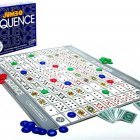 Sequence Board Games, a Fun and Productive Way to Spend Time with the Family! Everything You Need to Know About This Game & 3 Sequence Board Games You Can Buy Online (2020)
Sequence Board Games, a Fun and Productive Way to Spend Time with the Family! Everything You Need to Know About This Game & 3 Sequence Board Games You Can Buy Online (2020)
-
 In Today's Digital World of Mobile Phones & Tablets, it is Important to Engage Your Kids in Outdoor Games As Well: 10 Fun Outdoor Toys for Your Child's Overall Development (2020)
In Today's Digital World of Mobile Phones & Tablets, it is Important to Engage Your Kids in Outdoor Games As Well: 10 Fun Outdoor Toys for Your Child's Overall Development (2020)
Make Your Child Learn Life Skills with Daily Chores at Home
Daily chores help your kids learn how to care for family, home, and themselves. Doing basic things at home, they can experience and learn relationship skills such as negotiating, cooperating, communication, and working in a team. Other skills they can learn include cleaning, preparing food, gardening, and organizing things.
These go a long way in making their life easier when they grow into adults. Besides, when children help their family, they also feel more responsible and competent. Completing certain chores makes them feel satisfied and sharing family work helps reduce stress as well. When kids participate in daily chores, parents get free earlier and get more time to spend together.
Effective Tips to Get Your Children Excited About Chores
Set a Cheerful and Positive Tone
It’s not an easy thing to persuade your children for housework. You need to ask for help cheerfully. Before doing this, take a deep breath and change your negative tone into a positive one. E.g. You should say please while asking them to pick up things and not use the interrogative tone asking them why they didn’t organize those. Always set a better example. For instance, if you keep complaining about family contributions and responsibilities, kids grow the habit of doing the same.
Don’t Call Them Chores
Yes, those are called chores. What else you would say? Refer to household chores as family contributions, ways to help family, or responsibilities. Merely changing the name while keeping the language strong is a simple approach to encourage your child to do housework. Also, let them understand that it’s the responsibility of every family member to take care of each other. Emphasize how this contribution is essential to maintain a healthy, safe, and comfortable home environment. The family manifesto is a fun activity to promote connection with the family. When kids see the tasks in a meaningful way, they are more willing to offer help.
Set Reasonable Expectations
Ensure that you ask your kids to participate in age-appropriate chores only. If they struggle to meet the expectations, get them to ask for help. If required, finish the chore with your child for the first time while making them understand how to do it the right way. If your kid hesitates in asking for help to do a chore, you need to take the first step and offer some assistance.
Offer Choices
Having choices can enhance the willingness of a child to do housework. Children learn how to control their lives and choices is the essential life skill. You can ask them to choose one from cleaning the bathroom and sweeping the kitchen. You need to offer at least two choices to your child. Whatever they choose, your kids practice responsibility after accomplishing a task.
10 Daily Chores for Kids
Setting the Table
Children like to do this chore. However, it can be stressful and confusing for your kid at the beginning to arrange all things correctly. But when they are used to the work, they love putting everything in the right place. You can make them set water cups, napkins, serving spoons, and other things on the table. If you use chinaware, dishes are likely to get trashed and broken at times which is a risk you take. If you want to avoid that then you can opt for steelware or use Corelle dinnerware as they are lightweight and unbreakable. Also, you have to remind them that it’s a learning process part. In the case of breakable items, ask your child to take only 1 item carefully at a time to the table to reduce stress and breakage.
Garden Work
Flowers and plants bloom in warm weather. Children like to dig in the mud and get involved in garden work when they are young. They take it as playing in the mud. And, there are various garden chores that children enjoy doing ranging from seeding to weeding. You have to teach your child how to recognize flowers or plants from weeds and let them enjoy digging up the weeds.
Another interesting garden chore for them is to water plants and flowers. They can also help in picking ripe vegetables and fruits. Sowing and planting beautiful flowers, checking them for critters, painting fences, and walls are other daily chores for kids in a garden.
Clean the Bathroom
The bathroom is another playground for kids in a home where they love to play with water, soap, and other items. And, you can use this interest of them to get useful tasks done. Get your child to wipe down mirrors and counters, fill soap dispensers, mop the floor, and clean the toilet. Though exposing kids to chemical cleaners isn’t advised, you can use a safer approach by letting him/her use half water and half vinegar solution for cleaning. They can also use cleaning wipes to wipe the toilet seat and sink.
Children of the 2-4 age group can help empty trash, transfer dirty or grimy clothes to the laundry, and clean baseboards. Elder ones, from the age group of 5 to 6 years, can participate in sweeping the floor. And, those above 7 years of age can easily clean the toilet as well as sink. They can also go for cleaning mirrors by spraying and wiping on them.
Organize Toys

Being organized is an essential lifestyle skill that many people fail to learn even at elder ages. And, you can make your child develop this by putting him/her to do this basic household work. Ask your child to sort toys at least once or twice every week. Also, ask them to separate toys and keep the ones they use in their room. And for others, he/she is going to use later, should be stacked into a big box and placed in the storeroom.
Teaching your kid how to organize toys can be a worthy skill to learn for you as well as your kids. There are various practical ways to help your kids learn the art of organizing things. For instance, keep their favorite toys at the lower shelves to avoid climbing and make them easily accessible every time. Another solution is to keep them in small baskets so that the child can easily pick those up and start playing. One of the best ideas is to use organizing boxes for toys that are properly labeled and sized. If your child is small and not able to read, you can let him draw pictures on the boxes. Besides, add some more fun and joy by playing some music or singing a song alongside the work.
Feeding Pets
Children, and even adults, like to have a pet at home with whom they can play and spend quality time. Whether as a cuddle buddy or playmate, pets help nurture the quality of empathy, compassion, and commitment among kids. Your young child gets involved with taking care of the family pet and, based on age, can do several chores.
Those under 6 years of age can help pets with meals. Let your child pour the meal into a pet’s bowl while ensuring that, at food time, your pet is not getting overly worked. Your kid can also take up the grooming task that involves gently brushing the pet. It’s an amazing way to build a positive relationship between your pet and child. Playtime is an interesting thing that children and pets love to do together. For simple and easy, the child can toss a ball and the pet runs around the floor or garden to grab it. This quality time can also instill a sense of ownership and pride among kids.
Those falling in the 7 to 12 age group can take up meals and bathing chores for pets. Older kids can effectively take up the responsibilities of giving meals to the pet. Another one for the child is to get a specific duty of managing small fuss while helping the pet take a bath with soap and water. However, it’s essential for your child to know about the importance of the job and getting it done properly.
Fold Laundry
Separate small clothes from other laundry items and give them to your child to fold. Even a 4 years old child can fold small clothes such as handkerchiefs, undergarments, socks, vests, etc. And, a 6-year-old child can fold bigger ones like pants and shirts. With this, they feel involved and develop their folding laundry habit. This converts to honing their motor skills. However, you need to teach them folding the clothes neatly for a start. And, when a child learns doing such things, it comes in as a big relief for the entire family.
Kids aged 2 to 3-years are excited to do basic house chores and you should make use of them. You can ask them to unload the machine. Older 4 to 5 years old kids can do sock matching. At this age, your child has recently learned about various shapes and colors in preschool. They can discover the matches while you keep folding other clothes.
Straightening up a Room
Encourage your kid to keep his/her clean as well as well-maintained. Herein, you can offer help in making the bed and organizing toys. Teach them about the importance of throwing waste things in a trash can and emptying the same regularly. After children play with friends in a room, putting back all the toys, clearing counters, and straightening up the room consumes a lot of time. However, if you teach your child to clean the room after playing, you can engage him/her in a healthy activity as well as reducing your daily workload. In the meantime, you can finish other chores like sweeping the kitchen.
Dry and Wash Dishes
Due to dishwasher, it’s kind of job that people usually don’t let kids do at home. This is because most of the dishes left for hand washing are either fragile or big. However, a six-year-old can handle this job.
You can ask him/her to wash and dry small dishes. Before starting, you need to teach and show your child how to clean dishes and stack them in a drainer for drying. 7-year-olds can easily understand how to hang off stacked things. It’s a kind of fun task for them because it feels similar to putting puzzle pieces together.
Vacuuming
Most of the children like to do the vacuuming. But the only problem here is that the vacuum cleaner is very heavy for a kid to handle. You can let them start with small handhold items like a pillow, small floor messes, and others with a mini vacuum. When they grow strong enough, a full-sized vacuum cleaner comes in next. A 5-year-old kid can do this job perfectly once he learns how to handle the heavy vacuum cleaner. Clearly, they cannot sweep the surface as you do but they can help make it clear enough if they practice multiple times a week.
Wipe off the Table
Kids of 5-7-year-olds can easily help in clearing the dishes and leftover food from the table. You can make them start with a little bit of help. They can help with letting down things on the counter of the kitchen as well as put away certain things. They can also wipe the table very well without spreading crumbs on the floor. You have to make them learn how to wipe the table effectively. To start with, the kid might not do this chore perfectly without hitting some crumbs on the floor but you will have to gradually help him/her do better. Besides, you can ask them to wipe the table two or three times to ensure that it gets properly cleaned.
Bonus Tip
Praise Effectively
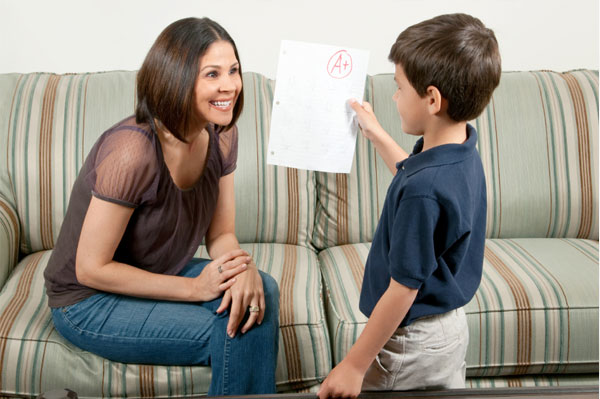
Praise goes a long way in encouraging one to do tasks more effectively. That’s why praising your child while doing daily chores is positive. Ask them politely to set the table so that all family members can enjoy the food together. And, once they complete their task, say thank you. With this, your kid feels like contributing more to the family. Encouraging your child also helps him/her perform better in the future. Always use terms like thank you and please while assigning tasks and praising them. This makes them feel respected and inculcates a polite behavior for life.
-
 Ramadan is the Month to Show Love and Respect Towards Allah as Well as His Creations! Wish Your Loved Ones with These Ramadan Mubarak Images for This Blessed Month!
Ramadan is the Month to Show Love and Respect Towards Allah as Well as His Creations! Wish Your Loved Ones with These Ramadan Mubarak Images for This Blessed Month!
-
 Planning to Show Your Mother How Much She Means to You? Here Are Some Meaningful Gift Ideas for Your Mom in 2019
Planning to Show Your Mother How Much She Means to You? Here Are Some Meaningful Gift Ideas for Your Mom in 2019
-
 Don't Wait Any Longer To Show Your Affection Towards Loved Ones! Send In These Ramadan Greeting Right Now! Wish Your Loved Ones With These Greetings For The Blessed Month!
Don't Wait Any Longer To Show Your Affection Towards Loved Ones! Send In These Ramadan Greeting Right Now! Wish Your Loved Ones With These Greetings For The Blessed Month!
-
 Learn How to Make Your Own Chemical Free Slime without Borax and Keep the Kids Engaged for Hours: 8 Recipes for Borax Free Slime, 3 of Them Edible! (2020)
Learn How to Make Your Own Chemical Free Slime without Borax and Keep the Kids Engaged for Hours: 8 Recipes for Borax Free Slime, 3 of Them Edible! (2020)
-
 Searching for Healthy Evening Snacks Options for Kids? Check out These Easy-to-Prepare yet Delicious and Healthy Snacks Recipes to Satiate Your Kid's Hunger (2020)
Searching for Healthy Evening Snacks Options for Kids? Check out These Easy-to-Prepare yet Delicious and Healthy Snacks Recipes to Satiate Your Kid's Hunger (2020)
Assign Chore! Help Complete the Chore! Follow Through! Appreciate!
While experts believe that doing house chores is important for the psychological development of the child, it is not that easy. Most probably the first instinct is to hide from the chores or put it away until they can escape. The key to getting your kids to accept their chores is to challenge them or make a game out of it. At the same time, it is also important that you instill the importance of household chores. Make sure the kids complete the task and if they are falling behind do not take over the task for them. Help them with the task until they learn to do it themselves. Do not forget to appreciate them and instill positive thoughts even if it's not to your satisfaction.

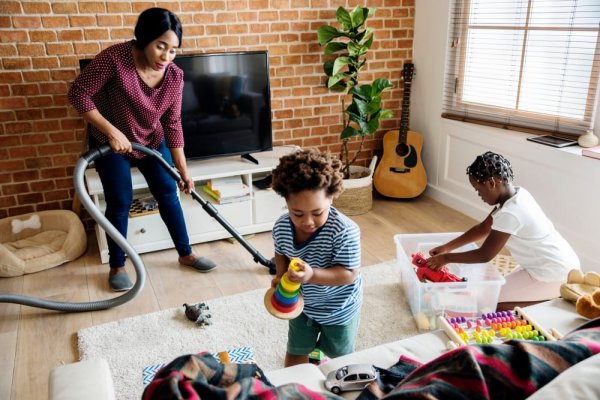
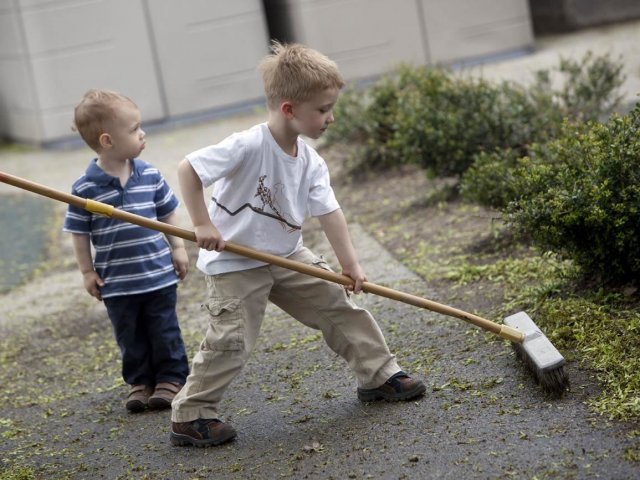


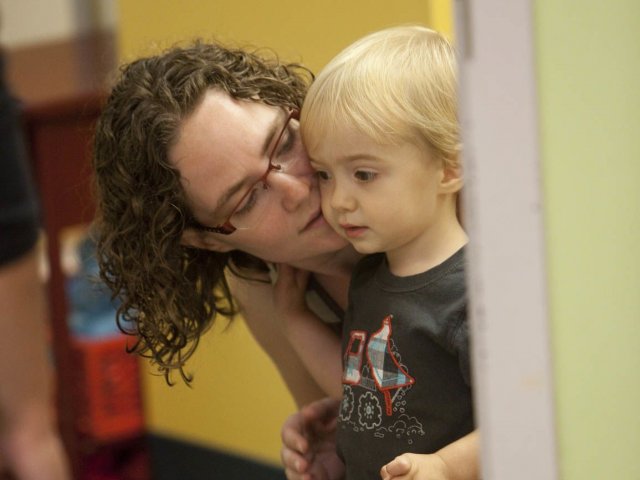





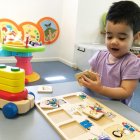
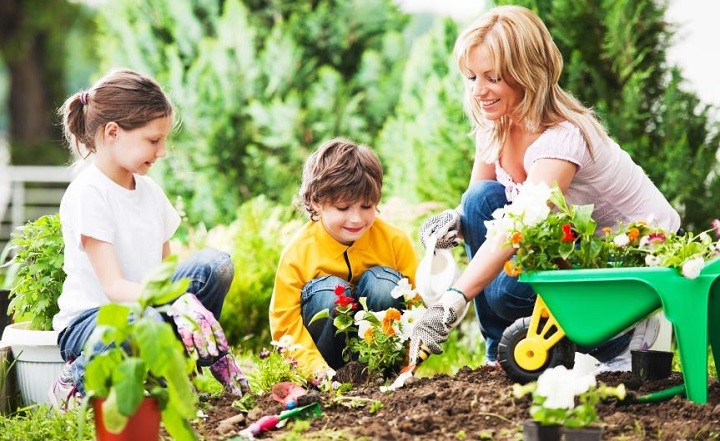
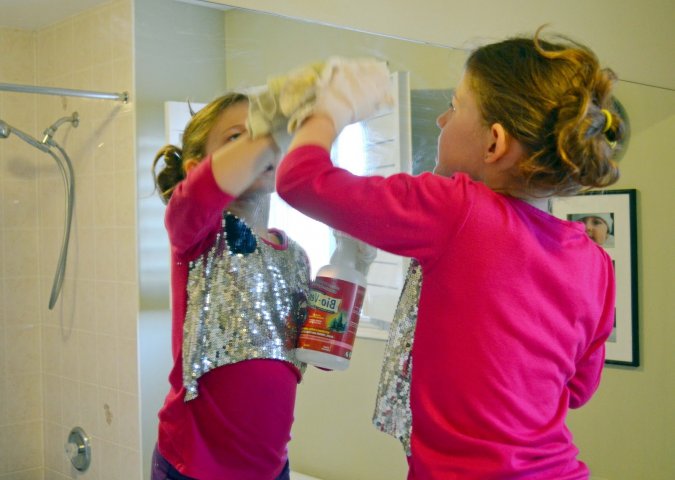



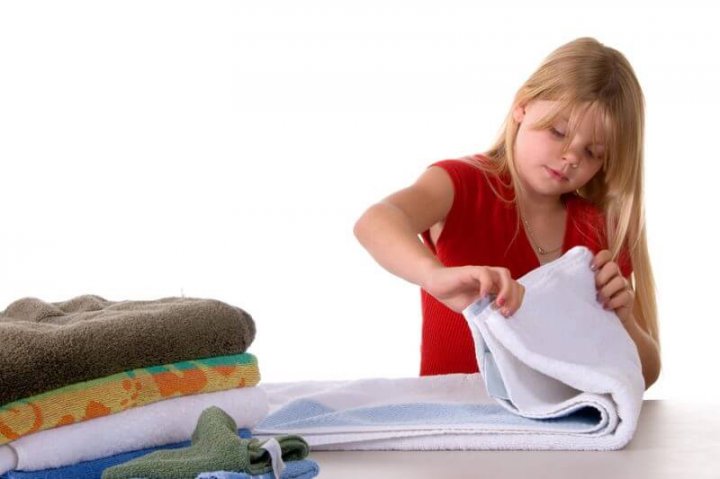


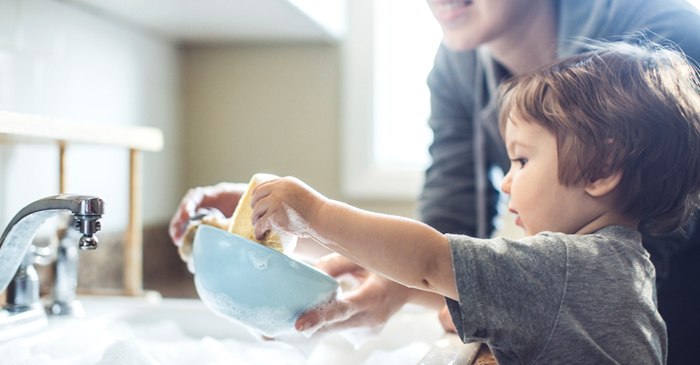



 Highlight the Best Facets of Your Incomparable Beauty: Discover the Best Face Highlighter Currently Available in India and Everything You Need to Know About Using Face Highlighters for Maximum Effect (2023)
Highlight the Best Facets of Your Incomparable Beauty: Discover the Best Face Highlighter Currently Available in India and Everything You Need to Know About Using Face Highlighters for Maximum Effect (2023)
 Forget the Blemishes and Get that Picture Perfect Flawless Radiance on Your Face: Check out the Best Foundations for Oily Skin Currently Available in India and Everything You Need to Know About Makeup Foundations (2023)
Forget the Blemishes and Get that Picture Perfect Flawless Radiance on Your Face: Check out the Best Foundations for Oily Skin Currently Available in India and Everything You Need to Know About Makeup Foundations (2023)
 Make Your Presence Felt Wherever You Go: Discover the Best Perfumes Under 2000 for Both Men and Women to Announce Your Arrival and Make Any Occasion Memorable (2023)
Make Your Presence Felt Wherever You Go: Discover the Best Perfumes Under 2000 for Both Men and Women to Announce Your Arrival and Make Any Occasion Memorable (2023)
 Protect Your Oily Skin from the Harmful Rays of the Sun: Discover the Best Gel Based Sunscreens for Oily Skin and Everything You Need to Know Before Buying One (2023)
Protect Your Oily Skin from the Harmful Rays of the Sun: Discover the Best Gel Based Sunscreens for Oily Skin and Everything You Need to Know Before Buying One (2023)
 Minor Blemishes and Wrinkles Affecting Your Confidence? Check out the Best BB Creams to Conceal Your Worries and Nourish Your Skin to Restore the Healthy, Radiant and Glowing Complexion Back Again (2023)
Minor Blemishes and Wrinkles Affecting Your Confidence? Check out the Best BB Creams to Conceal Your Worries and Nourish Your Skin to Restore the Healthy, Radiant and Glowing Complexion Back Again (2023)
